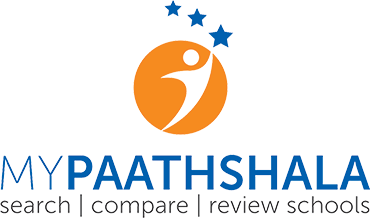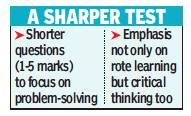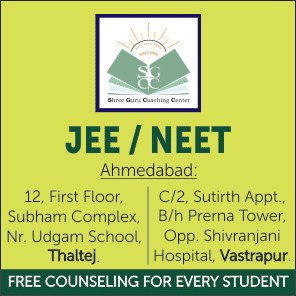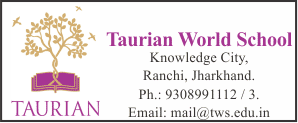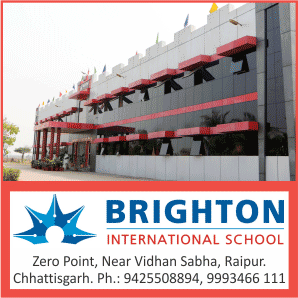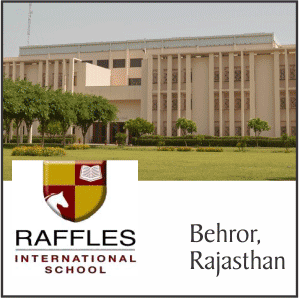‘More Analytical Questions, Less Scope For Rote’
The Central Board of Secondary Education plans to change the question paper pattern of Class X and XII exams from 2020 as part of a revamp that also includes holding vocational subject tests earlier (in February) and early declaration of results.
Officials said the new exam pattern would test students on their analytical abilities and reduce the scope of rote learning.
“The questions will be more in the nature of problem-solving. There will be more short questions (between 1 to 5 marks). The stress would be on probing the critical thinking abilities of students and test actual learning outcomes rather than allow students to score high marks by virtue of rote,” said a senior HRD ministry official, who did not wish to be named.
The board has also submitted new “CBSE bylaws” to the ministry for approval, according to which the focus during affiliation/renewal of schools will be on academic quality of institutions. For the inspection of infrastructure in schools, the board will bank on reports of the recognising authorities, that is, the respective state education departments.“The proposals will take another three-four months to crystallise. However, the board is already working toward the changes in the pattern of questions from 2020,” said the official.
CBSE may schedule Board exams in 2 parts
The board is also looking at completing all exams in March itself to give more time for evaluation and to declare the results earlier.
For that, according to MHRD sources, CBSE is likely to schedule the Board exams in two parts — vocational and non-vocational subjects. “The exams for vocational subjects, where the number of students is significantly lower, can be conducted in February so that the exams for other subjects can be completed in around 15 days in the month of March,” the official said.
Ministry officials said that the proposals regards examination schedule were still at the discussion stage and “nothing has been crystallised so far”.
CBSE is also seeking to change its bylaws that will impact the rules of affiliation for schools. The proposed bylaws will lay more emphasis on the academic quality of schools, such as the quality of teachers, learning outcomes and pedagogy. The board will not conduct any inspection of the school’s physical infrastructure, for which it will depend on reports of the directorates of education/ school education departments of respective states which give recognition to schools.
“State governments and other agencies conduct inspections during the process of granting of recognition to schools. To repeat the same would be a waste of time and resources,” the official said.
“Instead, CBSE will put to use its resources in measuring the academic quality,” the official added.
Source – Times of India, Ahmedabad – 23/8/2018
